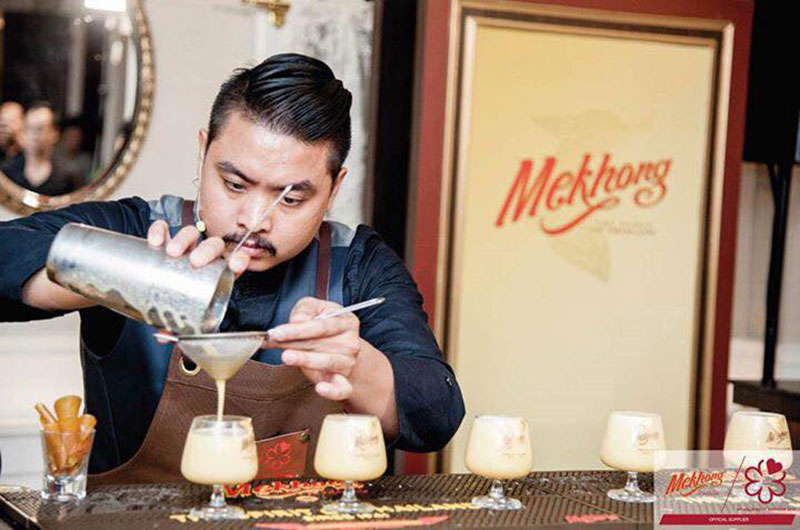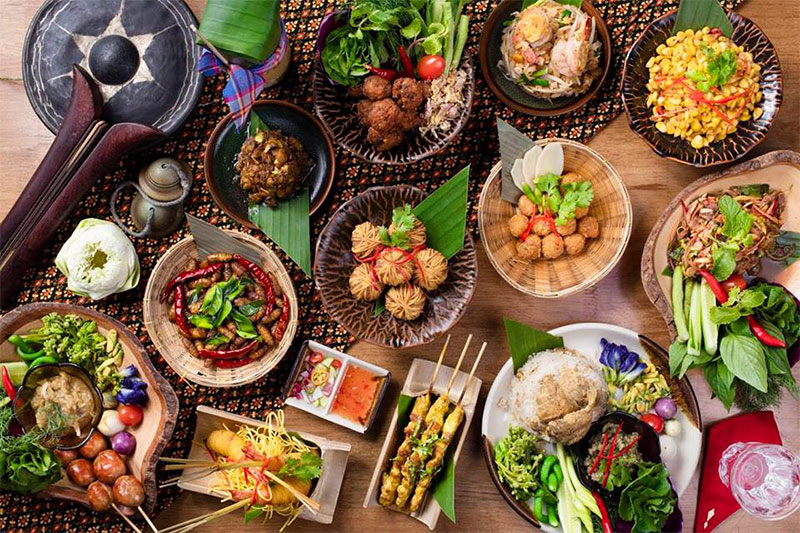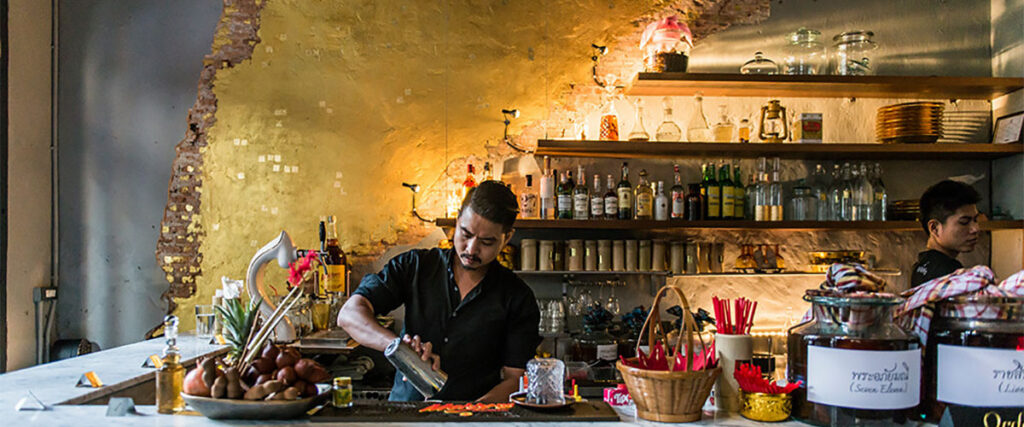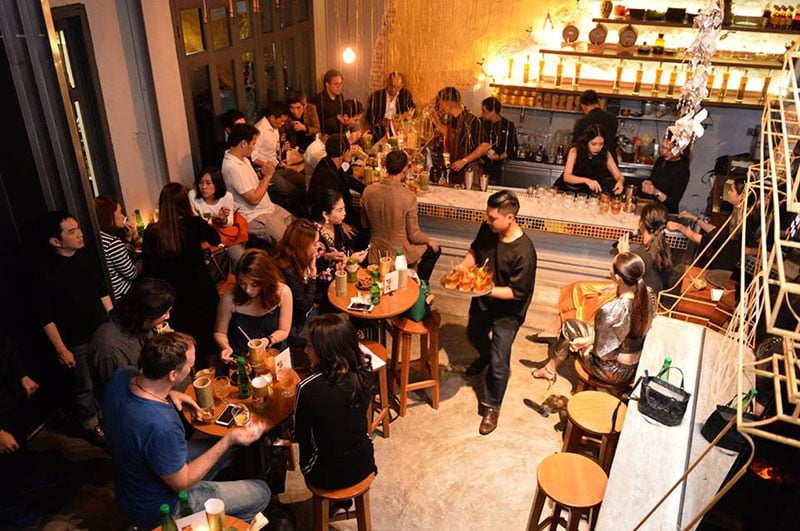How Bangkok’s most talked about bar serves up a taste of Thai culture through its cocktails, cuisine and atmosphere.
Bangkok’s favourite speakeasy in the up-and-coming Charoenkrung area has been a game changer in the city’s nightlife scene. Since its opening in 2015, Tep Bar has become increasingly popular as a hangout to head to, not only for the good times but also as a place serving up a taste of traditional Thai culture. Inspired by the successful export of Japanese sake as a concept and a cocktail all around the world, founder Asawin Rojmethatawee set out to revive his country’s traditions by bringing them to a new audience in a new way. We talk to him about the importance of keeping those traditions alive.

When strolling through the streets of Bangkok’s Chinatown, the only way to know that you have stumbled across Tep Bar will be either from the subtly placed Thai sign outside its entrance or from the dulcet tones of traditional instruments coming from within. “The journey to get to Tep bar should be an experience in itself”, says Asawin. Step inside, and that experience hits just as strong as you discover a bar that gives a real sense of what Bangkok might have been like once before.
All this is done by design. With no previous background in the F&B industry, it was in 2014 that Asawin left his stable job in Singapore to return to his homeland and take on the challenge of reintroducing Thai culture and Thai liquor to the new generation. Joined by his wife and two friends, he then transformed what was once an abandoned rice warehouse into Bangkok’s most visited and talked about cultural bar to date. “One thing that Thailand has always stood out for is its long history of celebrating its rich culture with food, drinks, music and art”, he explains. And from the very beginning, the principal aim of Tep bar was to create a brand that represents that Thainess beyond just food and drinks. Every minute detail, from the impressive menu to the vibrant music, art and concept design serves to capture that mission.

This idea of reintroducing Thai liquor was inspired by Asawin’s many visits to Japan. “I couldn’t find the answer as to why Sake has developed as quickly and impressively as it has in so many different countries, despite being introduced at the same time as Thai rice wine and Thai herbal liquor. Just like Thailand, Japan is a country that admires its history. They’ve managed to successfully adapt their many traditional restaurants and bars to fit with today’s modern society. And there is absolutely no reason why Thailand cannot do the same”.
Armed with the aim of creating a brand that was strong, consistent, and clear; soi Nana in Chinatown was the perfect spot for his new venture. “Whilst the high rents in Sukhumvit area were partly the reason for this location, it was also incredibly important to us that Tep bar be located in an area rich with history,” explains Asawin. “The external environment is just as significant as the interior atmosphere”. From street stalls and shophouses, there’s no end to the signs of cultural heritage in Soi Nana. However, as expected, the locals did not immediately take to the news of a new bar opening in their area. He adds, “After many discussions and disagreements, we finally managed to find a practical solution that allows us to run a business in a way that would allow our neighbours to live peacefully without interrupting the historical background of the area in any way”.
Whilst Tep bar may not be the place to Instagram assortments of colourful, fruity cocktails, it’s a must-visit for those looking for a truly unique and memorable experience. Patrons travel far and wide for their Ya Dong set made with traditional herbal liquor. Asawin points out that “80% of our drinks are made from Thai liquor and rum with a range of bases such as pineapple, sugarcane, white wine rice, sticky rice, and potato. All these ingredients are closely tied to our roots and sourced from local farmers”.
The food menu follows similar lines. “Modern cuisine can sometimes overlook the simplest of ingredients,” says Asawin. “What we do here is figure out in deeper detail how we can reintroduce traditional dishes such as “Moo Sarong”, a traditional serving of dried egg noodle wrapped in ground pork, to the young generation. Our menus are not necessarily completely different to other bars and restaurants, but the way we prepare, research, and make our drinks and food are what makes us unique”. As the bartender at Tep Bar frequently puts it, “it all comes from the heart”.
Feature Image Credit: Bkk Magazine





